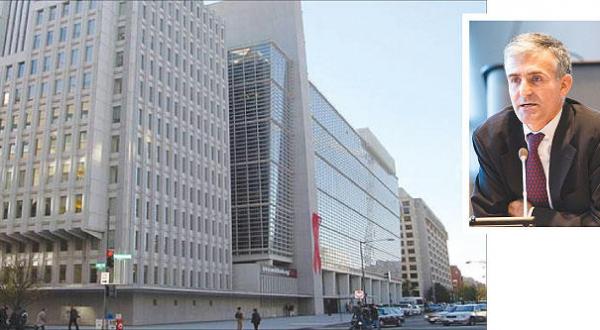London- Leaders of the World Bank, United Nations, and Islamic Development Bank Group pledged to work closely together in the region. They recently launched the new financing initiative to support the MENA region aimed at uniting the international community to face the region’s immense challenges, including flow of refugees, and to launch of the process of growth, recovery and reconstruction.
With the Syrian conflict entering its sixth year, and the region coping with one of the largest refugee crises since World War II, this approach aims at completing the massive humanitarian effort through strengthening the capacities of individuals and local communities to confront the traumas of conflicts and unrests and laying the necessary foundations to promote peace and stability.
This plan needs forming broad alliances as the objectives of the new strategy and the resources necessary to achieve them exceeds the capacity of any single organization.
In an interview with Asharq Al-Awsat, Director of Regional Programs, Partnerships and Integrated Solutions, Middle East and North Africa, Franck Bousquet, revealed that an expanded meeting will be held under the chairmanship of World Bank Group President Jim Yong Kim, United Nations Secretary-General Ban Ki-moon and President of the Islamic Development Bank Group Dr Ahmed Mohammed Ali Al-Madani with ministers from Group of Seven, Gulf Cooperation Council and European countries, in addition to presidents of various international and regional organizations, on the 15th of April.
The meeting will be held on the sidelines of the spring meetings of the International Monetary Fund and the World Bank in Washington that aim at discussing World Bank’s new financing initiative to support the MENA region.
Bousquet said that this chance promises providing primary financial support to launch the initiative and take appropriate and decisive actions in order to restore hope to millions of people across the region.
Bousquet said that World Bank Group President Jim Yong Kim announced in February, during Syria Conference that was held in London, that the initiative aimed to raise $1 billion dollars of grants from donors. These grants will leverage between $3 and $4 billion dollars of concessional finance for Lebanon and Jordan. These new financing initiatives, combined with the Bank’s existing programs, are expected to total about $20 billion dollars in the next five years, Kim said.
When asked about the price needed to reconstruct Syria, Bousquet answered that the bank estimates it will cost 170 billion US dollars over 10 years to rebuild Syria.
He also told Asharq Al-Awsat that the conference, which will be held in spring, will provide a chance to continue the new financing initiative to support the MENA region. This initiative was announced last October by the Secretary- General of the United Nations, the Presidents of the World Bank Group and the Islamic Development Bank Group during the annual meeting in Lima.
The meeting aims to help countries hosting significant refugee populations, countries impacted by conflict, as well as countries that have significant investment needs to achieve economic recovery.
“During the past few months, a working group headed by UN, World Bank and Islamic Development Bank finalized the details of the financing mechanisms and developed an implementation roadmap,” he said.
Moreover, Bousquet explained that the initiative aims at narrowing the gap between humanitarian and development needs to strengthen coordination between development banks, the United Nations, donor countries and hosting countries from the Middle East and North Africa. It also aims at coordinating the supporting procedures in order to tackle unusual challenges these countries are facing.
The international community is also working on supporting countries impacted by conflict and economic slowdown, as well as those affected by large numbers of refugees and internally displaced persons.
